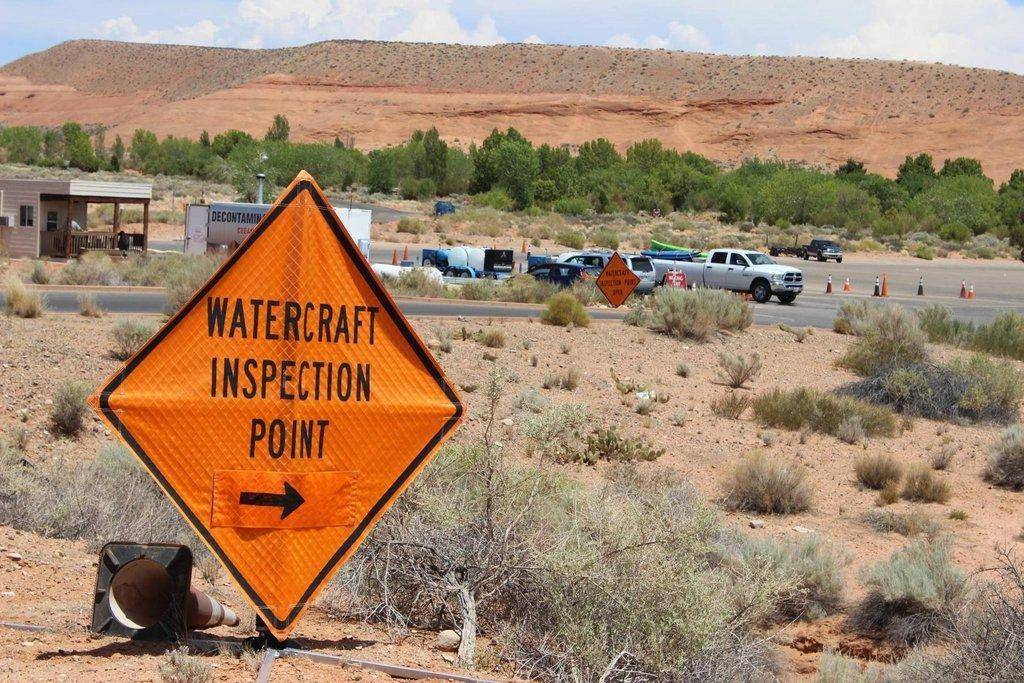DWR News Release
SALT LAKE CITY — Law enforcement officers, biologists, and technicians for the Utah Division of Wildlife Resources and Utah State Parks had a busy Pioneer Day weekend working to prevent invasive quagga mussels from spreading.
A total of 5,892 boats were inspected at various waterbodies and inspection stations around the state on July 27-28. More than 25% of those inspections took place at Lake Powell and its surrounding areas. Lake Powell is still the only waterbody in Utah with quagga mussels, and the increased inspections are focused on keeping the invasive species from spreading to Utah’s water-delivery infrastructure and other local waterbodies.
During the inspections at three Lake Powell stations, 11 dead quagga mussels were found on boats leaving the lake. Of the 1,582 inspections done at Lake Powell and the Kanab Port of Entry stations, 138 full decontaminations were performed and 11 citations were issued. The individuals towing boats received the citations for either not stopping at the inspection stations or for transporting their boats with drain plugs still in.
“We’d like to remind everyone that this is an issue that affects every Utahn — not just boaters,” Scott Dalebout, the DWR statewide operations lieutenant said. “Everyone who uses water and electricity will be impacted if this aquatic invasive species gets into Utah’s water infrastructure and pipelines. We need everyone to understand why quagga mussels pose a threat so they can help their friends and family members comply with these inspections.”
Boaters should remember that they must receive a boat inspection before leaving Lake Powell. Visit the DWR website for a list of all the decontamination stations around the state.
Why are quagga mussels so bad?
- They plug water lines, even lines that are large in diameter.
- If they get into water-delivery systems in Utah, it will cost millions of dollars annually to remove them and keep the pipes free, which would likely result in higher utility bills.
- They remove plankton from the water, which negatively impacts fish species in Utah.
- Mussels can clog your boat’s engine cooling system and damage the engine.
- When mussels die in large numbers, they stink. The sharp shells of dead mussels can cut your feet as you walk along the beaches.

